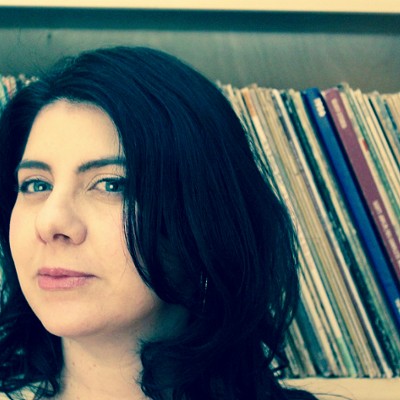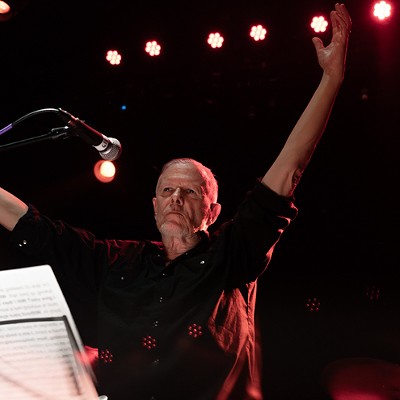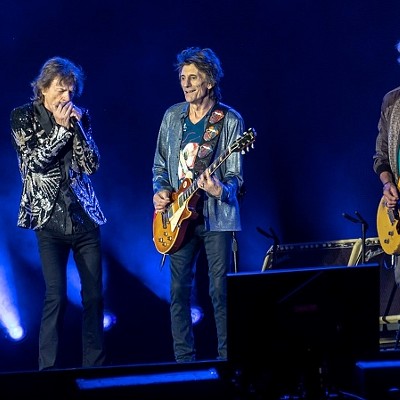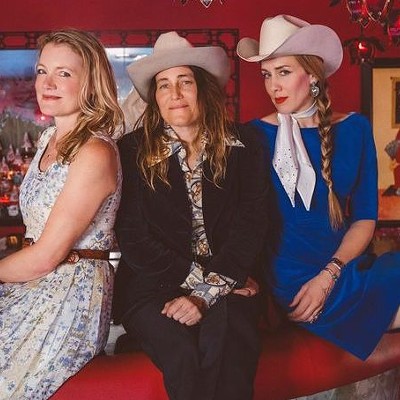Robert Kuhn brings to his songwriting a rich history of world travels, languages and a variety of personal experiences most people could only dream of. Kuhn traveled through South and Central America working a wide range of odd jobs, including fisherman on an island run by drug traffickers. Eventually returning to Texas, he settled on the sunny island of Galveston and became a regular performer at the legendary Old Quarter Acoustic Cafe.
Last time we heard from the Houston native, he brought us his debut album, the feel-good Everybody Knows. With his sophomore release, Kuhn not only lopped off his recognizable dreadlocks, but also veered from his previously Caribbean-dominated sound. His new album, Maria the Gun, brings a new vibe to the table, one reflecting the world's current troubled times without losing his trademark breezy and upbeat voice.
Kuhn decided to begin his decade-long travels, like so many young, hopeful Americans before him, after reading Jack Kerouac’s On the Road. “It was the first book that opened my mind that you can just go to Mexico and Central America like that," he says. "You can just get on the road. I wanted to do that.”
And “do that” he did. Throughout his travels, Kuhn had his guitar in tow and was aware that music is a unifying force. “It’s an instant connection when you play music. No matter where you are,” he says.
Kuhn did plenty of writing while traveling, even writing a yet-unpublished novel based on his journals. When he returned to Texas after so many years away, he made his home between Houston and Galveston and found musical support from two local legends, bluesman Little Joe Washington and former Old Quarter owner Rex “Wrecks” Bell.
“Rex has been my biggest supporter since the beginning," says Kuhn. "He put me up at the Old Quarter and helped me. Whatever I got going on really started at the Old Quarter.” Little Joe Washington made his final studio recording on Kuhn’s previous album, and their friendship resonates on the record.
“Little Joe was my buddy," he says. "We were good together. It was so cool to have him be a part of that. It was special. He could have one string on the guitar and make it work.”
With Everybody Knows, Kuhn and his band went into SugarHill Studios and cut 12 songs in one day. Maria the Gun took him and his band to Wolf Island Recording Studios in Dayton, Texas, with fewer time constraints and new leadership under producer and fellow local musician Kevin Skrla. “With this album, everybody had the time and energy to make it," says Kuhn. "The other one was like, 'Okay, we got a day and we are going into SugarHill with a band, 1-2-3 go!”
Though Kuhn's distinct voice and world-beat sound are constant throughout both albums, Maria the Gun brings an edginess not felt in his previous album. “Those songs were written at a different time of life. Those songs were written when I had just come back from living in Central America, so I was more with that kind of 'pura vida,' and now I’ve been here for a little while and I’ve had some experiences in these past couple of years," he says.
"There’s a lot of stuff going on in the world too, a lot of turmoil; things are getting hotter. Music is an expression of what’s going on in the world.”
Tracks such as "Bonfire" and "Viva la Revolucion" especially highlight this turmoil in the current political climate all over the world, while tracks such as "Low Way" bring us back to the singer's unifying message. "It’s not just a revolution of one political power, one place; it’s a world revolution of consciousness that is spreading and has to spread, I feel like, for everybody to get together,” Kuhn states.
He describes the difference in his new album as “Darker but still light. A different shade of it. How can you think it’s all just fun when it’s all really real? I think everybody is scared. And you think, “What can I do?' At least being a musician I can put something out there."
Influences from all over the globe converge in his music, and Kuhn can be hard to pigeonhole for those who wish to do so. “People still put me in the folk genre and I really appreciate folk music," he says. "Now I really have an understanding that everything is folk music.” With his new album in particular, though, Kuhn says, “Most people are putting this in Americana and I think it’s cool because it’s a Spanish-Mexican blend of blues and rock and roll and Latin folk. It’s fluid.”
Fluidity and water are reoccurring themes for Kuhn, and on Maria the Gun in particular. "Most of these songs were written in Galveston when I’m living close to the water," he says. "Why did I pick these songs? Even though they are all different, what do they have that makes them the same? It’s a watery vibe, fluid thing to it. Water can be a powerful force, it can get violent. Especially here or anywhere that has ocean."
Any Houstonian knows this well, especially after the recent devastation caused by Tropical Storm Harvey. Kuhn rode out the storm in Galveston, lending a hand, as so many wonderful Houstonians did, to a pregnant friend and neighbor helping her prepare her home for incoming water. Now, he says, he's looking forward to getting back to work and playing Saturday afternoon's Post-Harvey "Houston Hang In There" show at Cactus Music along with Gio Chamba and Say Girl Say, as well as a full record-release show later that night at the Big Top.
"I’m ready to put this album out there," Kuhn says, "because I think there are a lot of people out there that are thinking the same thing, [that] there has to be some kind of change for our life to continue the way we want it to continue and so it can continue."
Robert Kuhn performs 1 p.m. Saturday, September 2 at Cactus Music (2110 Portsmouth), and 8 p.m. Saturday at Shoeshine Charley's Big Top Lounge (3714 Main).
Support Us
Houston's independent source of
local news and culture
account
- Welcome,
Insider - Login
- My Account
- My Newsletters
- Contribute
- Contact Us
- Sign out

Photo by Gladys Fuentes
[
{
"name": "Related Stories / Support Us Combo",
"component": "11591218",
"insertPoint": "4",
"requiredCountToDisplay": "4"
},{
"name": "Air - Billboard - Inline Content",
"component": "11591214",
"insertPoint": "2/3",
"requiredCountToDisplay": "7"
},{
"name": "R1 - Beta - Mobile Only",
"component": "12287027",
"insertPoint": "8",
"requiredCountToDisplay": "8"
},{
"name": "Air - MediumRectangle - Inline Content - Mobile Display Size 2",
"component": "11591215",
"insertPoint": "12",
"requiredCountToDisplay": "12"
},{
"name": "Air - MediumRectangle - Inline Content - Mobile Display Size 2",
"component": "11591215",
"insertPoint": "4th",
"startingPoint": "16",
"requiredCountToDisplay": "12"
}
,{
"name": "RevContent - In Article",
"component": "12527128",
"insertPoint": "3/5",
"requiredCountToDisplay": "5"
}
]
KEEP THE HOUSTON PRESS FREE...
Since we started the Houston Press, it has been defined as the free, independent voice of Houston, and we'd like to keep it that way. With local media under siege, it's more important than ever for us to rally support behind funding our local journalism. You can help by participating in our "I Support" program, allowing us to keep offering readers access to our incisive coverage of local news, food and culture with no paywalls.
Gladys Fuentes is a first generation Houstonian whose obsession with music began with being glued to KLDE oldies on the radio as a young girl. She is a freelance music writer for the Houston Press, contributing articles since early 2017.
Contact:
Gladys Fuentes
Trending Music
- Top 10 Butt-Rock Bands of All Time
- Is Pink Floyd's A Momentary Lapse of Reason Misunderstood or Just Bad?
- How Much Longer Can Classic Rock Rule the Roost?
-
Sponsored Content From: [%sponsoredBy%]
[%title%]

Don't Miss Out
SIGN UP for the latest
Music
news, free stuff and more!
Become a member to support the independent voice of Houston
and help keep the future of the Houston Press FREE
Use of this website constitutes acceptance of our
terms of use,
our cookies policy, and our
privacy policy
The Houston Press may earn a portion of sales from products & services purchased through links on our site from our
affiliate partners.
©2024
Houston Press, LP. All rights reserved.






